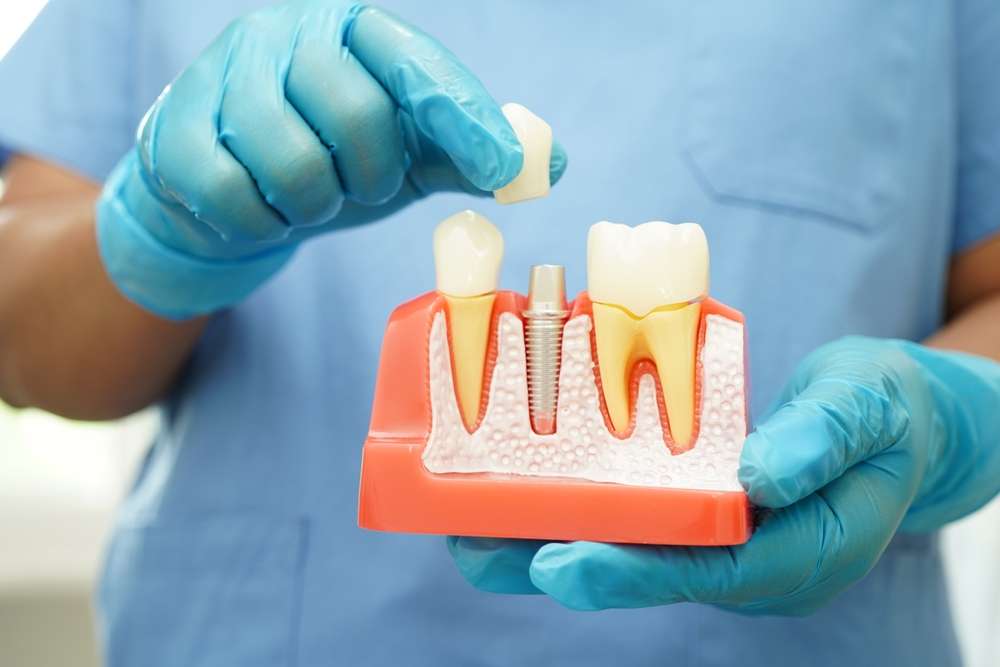The Future of Tooth Replacement: Understanding Dental Implants
Dental implants have revolutionized the field of dentistry, offering a long-lasting and natural-looking solution for those with missing teeth. This innovative dental procedure has become increasingly popular due to its ability to restore both function and aesthetics to a patient's smile. As more people seek alternatives to traditional dentures or bridges, understanding the ins and outs of dental implants is crucial for anyone considering this tooth replacement option.

Who is a good candidate for dental implants?
Not everyone is an ideal candidate for dental implants. Generally, good candidates for this dental procedure should have:
-
Healthy gums free from periodontal disease
-
Sufficient bone density in the jaw to support the implant
-
Good overall health, as certain medical conditions can affect healing
-
A commitment to good oral hygiene practices
Your dentist will evaluate your oral health, medical history, and lifestyle factors to determine if dental implants are the right choice for you. In some cases, additional procedures like bone grafting may be necessary before implant placement.
What is the dental implant procedure like?
The dental implant process typically involves several steps and can take several months to complete:
-
Initial consultation and planning
-
Extraction of the damaged tooth (if necessary)
-
Bone grafting (if required)
-
Implant placement surgery
-
Healing and osseointegration period (usually 3-6 months)
-
Placement of the abutment
-
Attachment of the final crown or prosthetic tooth
While the process may seem lengthy, the end result is a durable and natural-looking tooth replacement that can last for many years with proper care.
What are the benefits of choosing dental implants?
Dental implants offer numerous advantages over other tooth replacement options:
-
Natural appearance and function
-
Improved speech and eating abilities
-
Prevention of bone loss in the jaw
-
No need to alter adjacent teeth (unlike with bridges)
-
Long-lasting solution with proper care
-
Improved self-confidence and quality of life
These benefits have made dental implants an increasingly popular choice for those seeking to restore their smile and oral health.
Are there any risks or potential complications with dental implants?
While dental implants have a high success rate, as with any surgical procedure, there are some risks to consider:
-
Infection at the implant site
-
Damage to surrounding teeth or blood vessels
-
Nerve damage leading to pain or numbness
-
Sinus problems (for implants in the upper jaw)
-
Implant failure or rejection
Your dentist will discuss these potential risks with you and take steps to minimize them during the implant process. Proper aftercare and follow-up appointments are crucial for monitoring the healing process and addressing any issues that may arise.
How much do dental implants typically cost?
The cost of dental implants can vary significantly based on factors such as the number of implants needed, the complexity of the case, and the location of the dental practice. Here’s a general overview of dental implant costs and providers:
| Provider Type | Single Implant Cost | Full Mouth Implants Cost | Additional Costs |
|---|---|---|---|
| General Dentist | $3,000 - $4,500 | $20,000 - $45,000 | X-rays, CT scans |
| Specialist (Oral Surgeon/Periodontist) | $4,000 - $6,000 | $30,000 - $60,000 | Bone grafting, sinus lifts |
| Dental School Clinic | $1,500 - $2,500 | $15,000 - $30,000 | Longer treatment times |
Prices, rates, or cost estimates mentioned in this article are based on the latest available information but may change over time. Independent research is advised before making financial decisions.
It’s important to note that while dental implants may have a higher upfront cost compared to other tooth replacement options, their longevity and benefits often make them a cost-effective choice in the long run. Many dental practices offer financing options to help make implants more affordable for patients.
Dental implants represent a significant advancement in tooth replacement technology, offering a durable and natural-looking solution for those with missing teeth. While the process requires careful planning and a commitment to oral health, the benefits of improved function, aesthetics, and quality of life make implants an attractive option for many patients. As with any major dental procedure, it’s essential to consult with a qualified dentist to determine if dental implants are the right choice for your individual needs and circumstances.






